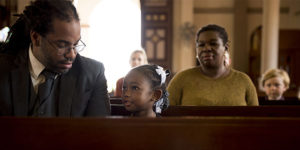
What do you think of when you hear the word ‘family’? If someone asked you, ‘Do you have a family?’, how would you answer?
In our modern Christian culture, we tend to assume that ‘family’ means the nuclear family: mum, dad and their young children, living together. Often this vision of family is presented as the ‘Christian’ or ‘biblical’ family.
Recently, I heard Rev Dr Danielle Treweek explain that this ‘nuclear’ vision of family is actually a modern invention. She quoted this description:
‘In today’s world, the phrase nuclear family conjures up an image of a domestic unit comprising two parents and their children who live together in a single-family residence and who share a deep affective intimacy with one another … Under these conditions, the modern nuclear family is an institution that is characterized above all by privacy.’1
But this is very different to how families looked and worked in Bible times and throughout most of human history. Dani Treweek explained that the phrase ‘nuclear family’ was never meant to refer to something private or separate from the rest of society. It is only the nucleus that sits within a broader network of social relationships—the whole atom! Slowly, we have taken the nucleus out of the atom.

However, when we expect small family units to be private and self-sufficient, it actually weakens both families and the wider society. The modern nuclear model of family isn’t actually working very well. Here’s why.
Keep reading over at Growing Faith, a Christian online magazine for parents. Find out more about Growing Faith and subscribe to our monthly e-newsletter here.


